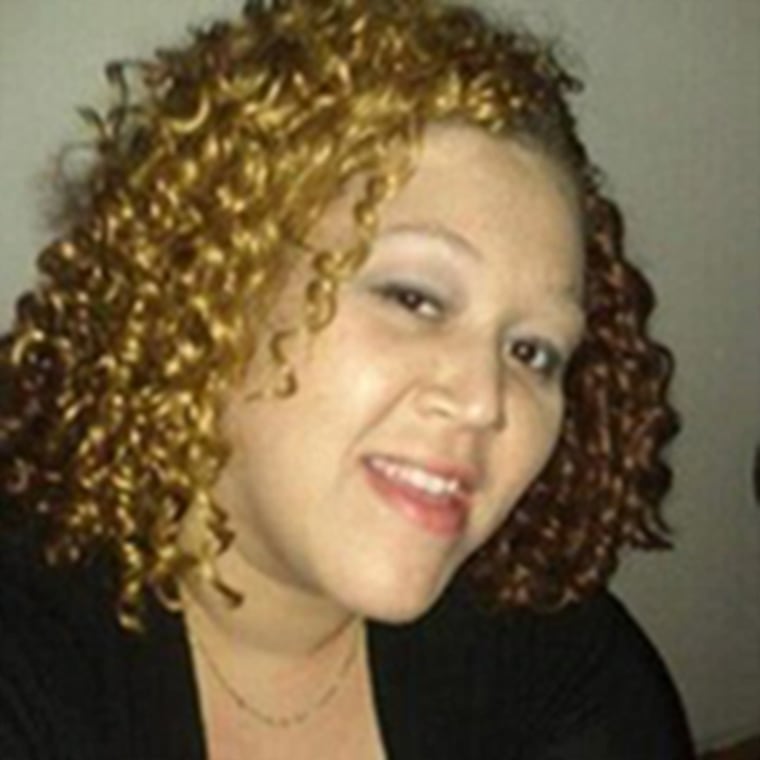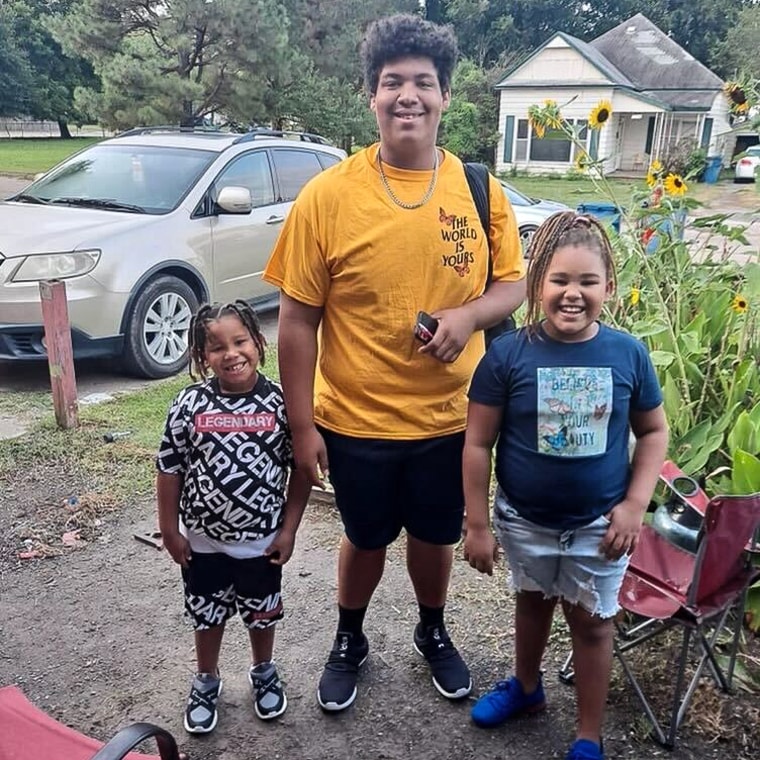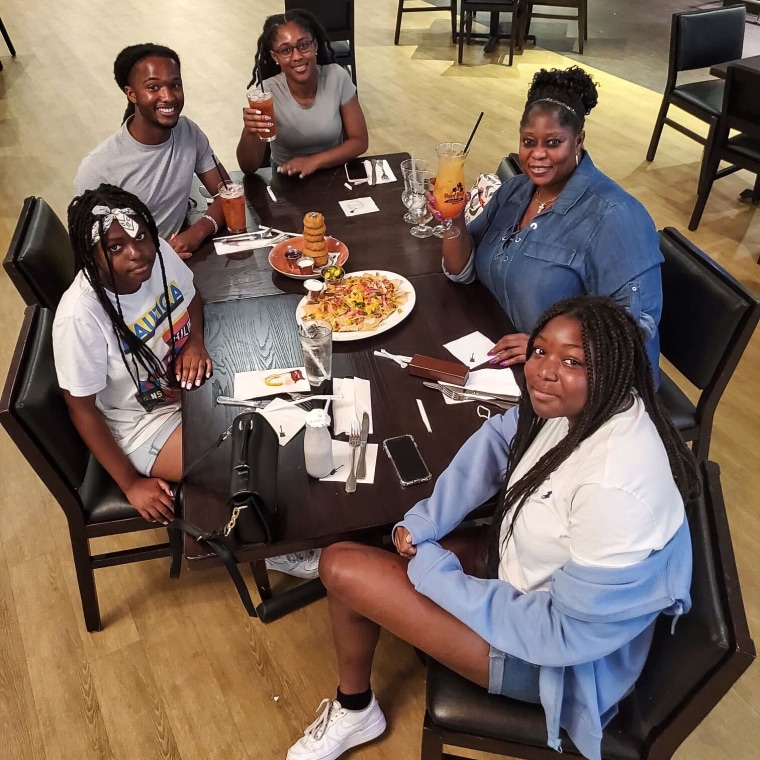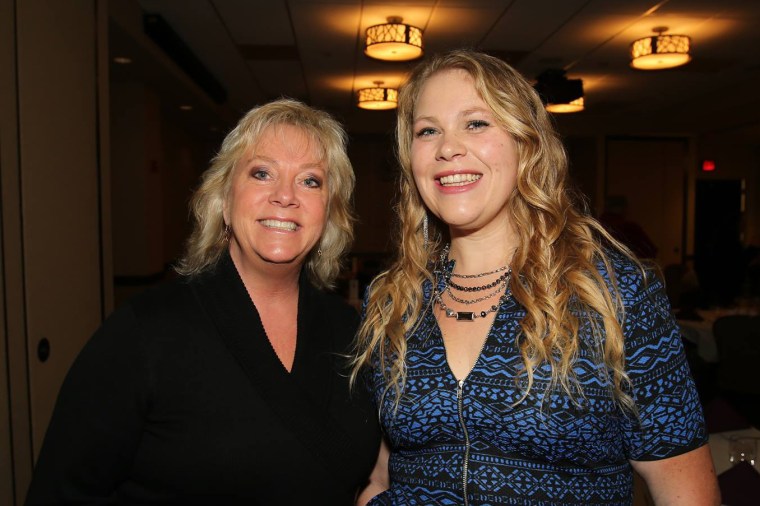The “what ifs” creep into Shelia Twyman’s mind when her grandchildren wake at night, crying.
The kids lost their mother, Shanna Twyman, to Covid-19 in September. Their father died of liver failure 2 ½ years ago.
As Twyman soothes her grandkids back to sleep, she wonders: What else might they have lost if their McAlester, Oklahoma, community hadn’t stepped in to help?
Twyman took in Shanna’s two youngest children after she died. Another family welcomed Shanna’s oldest son, Avion, 18, into their home.

With her 8-year-old granddaughter, Cajhmonét, and 6-year-old grandson, Cletis Jr., suddenly under her care, Twyman was forced to retire. That left her short on finances.
A fundraiser for the family kept them afloat, she said, as did a constant stream of neighbors who dropped off food.
Then, weeks after her daughter’s death, Twyman learned she and her grandchildren were entitled to up to $9,000 in Covid-related assistance for funeral expenses.
She didn’t find out about the federal reimbursement from an agency or government official. A mother from Avion’s football team informed her about it.
“We shouldn’t have had to do the GoFundMe,” she said of the donations she and her grandkids received before discovering the funeral reimbursement, which comes from the Federal Emergency Management Agency. “They should have been right there after my daughter died.”
“If a child has lost a parent, someone needs to show up at that doorstep right away — and I mean right away.”
Charles Nelson, professor of pediatrics
Two years into the pandemic, the number of children who have lost a parent or other in-home caregiver to Covid across the United States is estimated to exceed 200,000, and families and child advocates say identifying and assisting these kids should be a priority.
“In my mind, it is a national health emergency,” said Charles Nelson, a professor of pediatrics at Boston Children’s Hospital and Harvard Medical School who was among the first researchers to study caregiver deaths to Covid. “If a child has lost a parent, someone needs to show up at that doorstep right away — and I mean right away.”

'They better speed it up'
With no standardized system to capture which children have lost mothers, fathers and other important adults in their lives, Nelson added, kids can easily fly under the radar.
When Cindy Dawkins, 50, a single mother in Boynton Beach, Florida, died of Covid in August, leaving behind four children, no one from the hospital or the city called, her kids said. They wouldn’t have known what to do if it weren’t for a family friend.
“I don’t think anyone’s going to turn down getting help,” Dawkins’ oldest child, Jenny Burrows, 24, said. “You’re not talking about adults that are losing someone. You’re talking about kids who don’t know how to navigate through the world, yet they lost the person, or one of the people, that are meant to help them.”
The Covid funeral assistance program is not exclusively for children. It has reached a wide swath of people who have lost family members to Covid: FEMA told NBC News it has given out over $1.8 billion in reimbursement for funeral expenses to more than 285,000 people and said it is working to raise awareness about the benefit, particularly in underserved communities.
That’s crucial, according to a bipartisan coalition known as the Covid Collaborative, which has argued that relatives, friends or other people who abruptly become caregivers often have no idea that this and other offerings exist.

In December, the collaborative issued a comprehensive report on bereaved children, urging the U.S. to take swift action to help them.
However, it was not until Wednesday that the White House announced an initiative specifically for such children as part of the administration’s new Covid-19 preparedness plan.
Few details were shared on what was envisioned beyond continuing to provide funeral expense assistance and “further develop a bereavement response to support children and families,” including trauma and grief-informed services. It will use existing funding, a White House official told NBC News.
The Covid Collaborative applauded the move. But some felt it should have come sooner.
“They better speed it up if they’re going to try to really help,” said Betsy Hurst-Younger of Sonora, California. Her daughter, Hailey Hurst, 33, died of Covid in September, leaving two sons, 9 and 11; the boys now split their time with Hurst-Younger, their father and an uncle.

Hurst-Younger said she hoped the federal response will be sensitive to the fact that there are unique challenges for kids who have lost a parent to a virus that has not yet gone away.
“Every single morning, when the TV gets turned on, there’s an update on Covid cases,” she said. For her grandkids, who are still struggling with the loss of their mom, “it’s a constant reminder.”
Life-altering losses, disproportionate burdens
Like other aspects of the pandemic, there is a racial disparity in who has been hit the hardest.
Black and Hispanic children lost caregivers at rates nearly two times that of white children, while Asian children lost caregivers at 1.4 times that of white children, according to the Covid Collaborative. American Indian and Alaska Native and Native Hawaiian and Pacific Islander children carried the biggest burden, losing caregivers at about 3.5 times the rate of white children.
Many had pre-existing vulnerabilities. More than 13,000 children lost their sole caregiver, the Covid Collaborative’s December report found; those children were already more socially and economically at risk.
Compounding matters, most kids who lost a parent or caregiver are under the age of 13.
Regardless of a child’s age, the effects can be devastating, with mental and physical health concerns at the forefront, experts say.
Other risks include abuse, neglect, substance abuse and poverty, said Susan Hillis, a senior research officer at Oxford University and the lead author of numerous studies on children orphaned by Covid, work she completed while with the Centers for Disease Control and Prevention.
“We have evidence that shows that intervening early at any time can prevent a lot of downstream consequences,” she said.
Related:
A first step: Identifying who needs help
Hillis believes the best way to track children who have lost a caregiver — to Covid or anything else — is to add a box on adults’ death certificates that asks whether there are children under 18 in the home. If the box is checked, a public health nurse or case worker should go to evaluate the family.
Some may be coping all right on their own, she said, while others may need support.
“Getting the help in time can mean the difference in whether that child has PTSD,” Hillis said, referring to post-traumatic stress disorder, or if a child develops severe depression or anxiety.
A White House official said federal efforts to reach bereaved children will likely be conducted through state and local leaders and community-based organizations but declined to provide a timeline.
In the meantime, a website by the Covid Collaborative that debuted Monday provides a centralized list of resources for children who have lost parents or caregivers to Covid. The site, hiddenpain.us, shows how to apply for Social Security survivor benefits and tools for emergency rental assistance. There are also links to grief camps, family bereavement programs and other grief services.
In Oklahoma, Twyman said she would have benefited from such a list all in one place after the death of her daughter, a hair stylist getting certified to become an educator for kids with disabilities.
She said she still feels grateful for the generosity of friends and strangers.
“We had the community that helped,” she said. Without them, she added, “I can see these kids going through this and not knowing where their next set of clothes is coming from, their next meal is coming from, if they’re going to have a roof over their head.”
This story originally appeared on NBCNews.com.